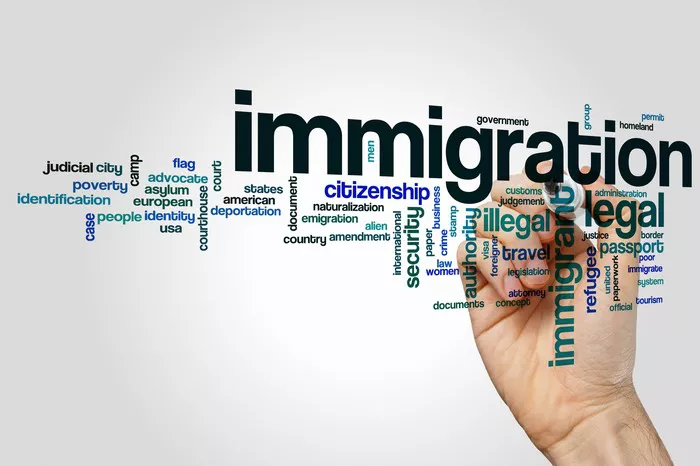In today’s globalized world, migration is a common phenomenon. People move across borders for various reasons such as work, education, family reunification, or seeking asylum. Immigration status refers to an individual’s legal authorization to reside in a country other than their country of birth. It is a critical aspect of international law and domestic immigration policies. Understanding what constitutes lawful immigration status is essential for immigrants, policymakers, and society as a whole.
What is Lawful Immigration Status?
Lawful immigration status denotes the legal permission granted by a country’s government to individuals to reside within its borders for a specific period. It provides certain rights and benefits, such as the right to work, access to healthcare, and protection under the law. Immigration laws vary significantly among countries, and what constitutes lawful status in one country may not be the same in another.
Types of Lawful Immigration Status
There are various types of lawful immigration statuses granted by countries, each serving different purposes and subject to specific regulations:
Permanent Residence: Also known as a green card or permanent residency, this status allows individuals to live and work indefinitely in a foreign country. Permanent residents enjoy many of the same rights as citizens, such as access to public services and protection under labor laws. However, they are typically not eligible to vote in elections or hold certain government positions.
Temporary Residence: Temporary residence permits allow individuals to stay in a foreign country for a limited period, often for purposes such as work, study, or family reunification. These permits may be subject to renewal and are usually tied to specific conditions, such as maintaining employment or pursuing education.
Student Visa: Issued to individuals who wish to pursue academic studies in a foreign country, student visas grant temporary lawful status for the duration of the academic program. Students are typically required to maintain full-time enrollment and may have restrictions on working off-campus.
Work Visa: Work visas allow individuals to legally work in a foreign country for a specific employer and duration. These visas are often tied to a job offer from an employer who has demonstrated the need for foreign labor due to a shortage of qualified workers domestically.
Asylum or Refugee Status: Asylum or refugee status is granted to individuals who have fled their home countries due to persecution, war, or violence and are unable or unwilling to return due to a well-founded fear of persecution. This status allows individuals to remain in the host country and eventually apply for permanent residence or citizenship.
Diplomatic and Official Visas: Diplomatic and official visas are issued to government officials, diplomats, and employees of international organizations for travel and official duties. These visas grant lawful status for the duration of their assignment or mission.
Requirements for Lawful Immigration Status
Obtaining lawful immigration status typically involves meeting certain requirements set forth by the host country’s immigration laws. These requirements may include:
Documentation: Applicants are often required to submit various documents, such as passports, birth certificates, marriage certificates (if applicable), and proof of financial means to support themselves during their stay.
Background Checks: Immigration authorities may conduct background checks to verify the applicant’s criminal history, immigration history, and other relevant information.
Health Screenings: Some countries require immigrants to undergo medical examinations to ensure they do not pose a public health risk and are not inadmissible due to certain medical conditions.
Financial Requirements: Applicants may need to demonstrate sufficient financial resources to support themselves and their dependents during their stay, or have a sponsor who can provide financial support.
Language Proficiency: Depending on the host country’s language requirements, applicants may need to demonstrate proficiency in the country’s official language or the language of instruction for their academic program.
Employment Sponsorship: For work visas, applicants may need a job offer from an employer who is willing to sponsor their visa and demonstrate that there are no qualified domestic workers available to fill the position.
Compliance with Immigration Laws: Applicants must demonstrate their intention to comply with the host country’s immigration laws and regulations, including not overstaying their visa or violating the terms of their stay.
Consequences of Unlawful Immigration Status
Individuals who reside in a country without lawful immigration status, often referred to as undocumented or illegal immigrants, face numerous challenges and risks:
Deportation: Undocumented immigrants are at risk of deportation if they are apprehended by immigration authorities. Deportation can result in separation from family members, loss of employment, and return to potentially dangerous or unstable conditions in their home countries.
Limited Access to Services: Undocumented immigrants may have limited access to essential services such as healthcare, education, and social welfare programs. This can exacerbate health disparities, hinder educational opportunities, and contribute to socio-economic marginalization.
Exploitation and Vulnerability: Undocumented immigrants are vulnerable to exploitation by unscrupulous employers, landlords, and individuals who may take advantage of their precarious legal status. This can include wage theft, unsafe working conditions, and human trafficking.
Fear and Stigma: Living with the constant fear of detection and deportation can take a significant toll on undocumented immigrants’ mental health and well-being. They may also face stigma and discrimination from society at large, further isolating them from their communities.
Legal Barriers: Undocumented immigrants may face legal barriers to accessing justice and asserting their rights, as they may be reluctant to report crimes or seek assistance from law enforcement due to fear of deportation.
Conclusion
Lawful immigration status is essential for individuals to access rights, opportunities, and protections afforded by the host country’s laws. Understanding the various types of lawful status and the requirements for obtaining them is crucial for immigrants navigating the complex immigration system. Equally important is recognizing the challenges and vulnerabilities faced by undocumented immigrants and working towards comprehensive immigration reform that promotes fairness, dignity, and respect for all individuals, regardless of their immigration status.


